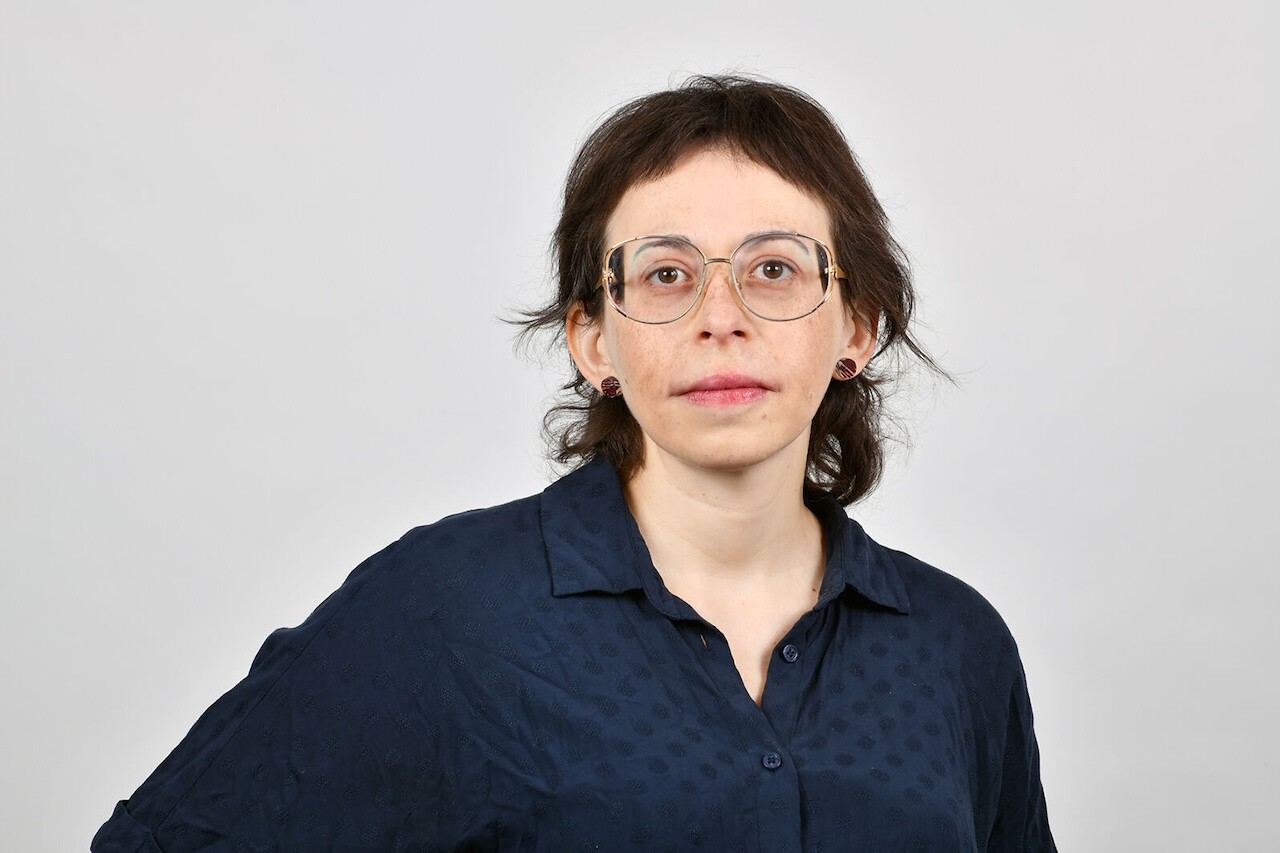

Marina Vishmidt. Photo by Barbara Herrenkind.
Marina had more time in the day. Whether the most intricately theorized argument or a casual phone call that she squeezed in between enough academic and political commitments to make any efficiency coach turn pale, her efforts always served to build solidarity. This incredible amount of activity was anything other than sacrifice at the altar of work and productivity; rather, it embodied the understanding that anti-work horizons and building cooperation take time. This is the tireless work of the radical who always makes time for you because that’s how we reclaim and appropriate our time back from our enemies. In an email exchange we shared during the first weeks of the Covid pandemic, we clumsily discussed how to include acknowledgements from both of us at the bottom of a conversation. She said, “w/o comradeship, and at a time like this, where are we?”
In a review she wrote of Anne Boyer’s The Undying, Marina underlines the book’s argument that pain is communicable, which means it can be deprivatized. Marina’s dedication to collective life, its good and bad, come through in every line of the piece. “Pain is said to be the most isolating thing, but Boyer has put the whole world in here.”1 Marina too worked to dispel the dominant logics and abstractions that individuate and separate, pain included, putting the whole world in there, in all her endeavors.
As two anti-Zionist Jews, we often discussed the evils that the localization and co-option of grief can legitimize for the liberal order. As I write this, students across the world are fighting for an end to the genocide of Palestinians and for the dissolution of the material and ideological infrastructures connecting the military-industrial complex and institutions we are inscribed within, not least of which is the financialized university, funded by the spoils of (neo)colonialism and the reproduction of conflict. As I—and countless others—have done many times in the past, I recently returned to Marina’s proposal for an “infrastructural critique” in place of “institutional critique,” to better understand the currently emerging student rebellions. As she argued so incisively, “If the project of critique always ends up affirming its subject,” then we need an infrastructural mode of thinking and action.2 The university, like any institution, “can be a type of infrastructure, but the shift needs to be understood as moving from a standpoint which takes the institution as its horizon, thus accepting the moralized premises that perpetuate it, to one which takes the institution as a historical and contingent nexus of material conditions amenable to re-arrangement through struggle and different forms of inhabitation and dispersal.”3
As I know Marina would attest, what is happening on campuses today is infrastructural struggle in lived, concrete form. Her formulation not only points to modalities of action that repurpose existing systems of production and reproduction to contest the machines of subjection, death, and disciplinarity; that repudiate the myths of autonomous aesthetic practice which make labor disappear4; that remind us of the necessity of an insurgent speculation that must be wrested back from capital. Her infrastructural critique also shows that infrastructures are there for the taking. We must creatively and speculatively abolish them without reifying the relations they reproduce in the process. It’s cruel to imagine that we will not have new reflections from Marina to help us confront the conjunctures to come. And yet we have much more to learn from her, and many more engagements with her thoughts in store.
After Buenaventura Durruti was killed fighting during the Spanish Civil War, Emma Goldman remarked that his comrades were “as one in their grief and in their determination to continue the battle against fascism.”5 We too must remain determined, following Marina’s lead. As an ardent anti-fascist, she never shied away from naming where today’s fascisms are produced, whether in jails, occupation checkpoints, union-busting law firms, or university restructuring consultancies. She is there with us to fight today. No matter how painful it is to continue without one of our shining lights, as Goldman declared: “No, Durruti is not dead! He is more alive than living … He lives in us for ever and ever.” Marina is more alive than living, and our struggles are stronger for it, because she put the whole world in there, in her work, in her friendships, and in her commitment to revolutionary horizons.
See →.
Vishmidt, “Beneath the Atelier, the Desert: Critique, Institutional and Infrastructural,” in Marion von Osten: Once We Were Artists, ed. Maria Hlavajova and Tom Holert (BAK, 2017), 235.
Vishmidt, “Only as Self-Regulating Negativity: Infrastructure and Critique,” Journal of Science and Technology of the Arts 13, no. 3 (2021): 13–24.
Vishmidt, Speculation (Whitechapel and MIT Press, 2022), 11.
See →.
